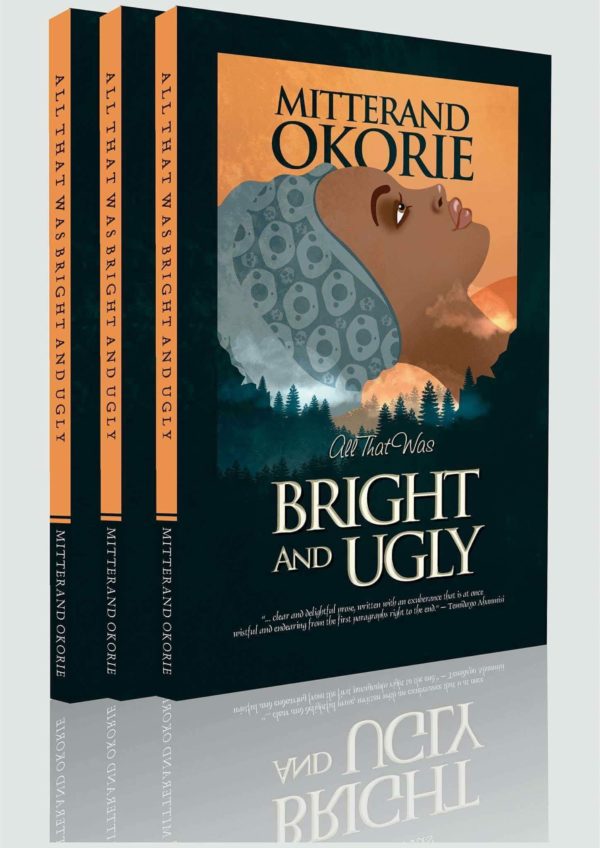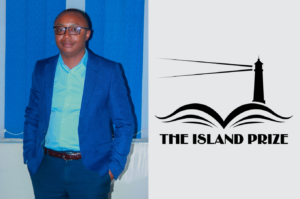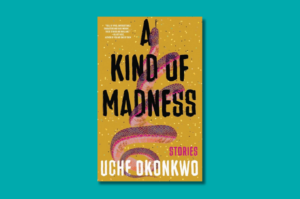
Three Facebook inboxes gossiping Mitterand Okorie’s All That Was Bright and Ugly hastened my search for the book. All three condemned it, never mind that one had openly praised it on a Facebook thread. Turned out it was, for the most part, moral outrage as criticism, conservative readership bemoaning a book’s erotic nuisance. Which is fairly understandable. Were his audience the young, urbane Nigerian, the writer might have taken that audience’s moral sensibilities for granted. Or rather he’d set out to offend them, to flout sexual sanction with blunt liberalism.
The book picks up after an initial longueur two chapters long. The lewdness gets monotonous, but not the story, which remains refreshing. In keeping a simple story charged and exciting, the writer manifests remarkable talent. Perhaps the magic is the lightness of prose and characters that can make one eagerly wait.
Andre, an uninitiated young man leaves behind his first love when he migrates overseas from Nigeria for further studies. Where his heart, with his manhood, hops from one woman to the other. In the turbulence of youth, he emerges half-human half-playboy, leaving wreckages of broken hearts. Sometimes he is the victim caught in the volatility of life—in that thing which happens to youth romance, filling it up with energy so total and sure, so sincere and heroic it charges forward to a premature end.
While abroad he keeps in touch with that first love in Nigeria, hoping to return someday to devour the lusciousness imagined over the years. He returns briefly, without his innocence of course, but with corrupt tastes for love and sex. After they have sex, the fantasy fizzles out like a deflated balloon and a girl is hurt. He returns abroad to his dream, to his escapades. Upon completing his studies he relocates finally to Nigeria and, having failed to find love, he dismisses the whole point of it. We either idolize or condemn our loss.
As a first person omniscient narrator, Andre is sometimes overwhelmed by his narcissism. All his lovers are beautiful and, in telling their wonder, he is indirectly praising himself—praising his tastes and the capacity of his own charm to attract the best. A subtle pride which he can back up though: good education, drive, brilliance, great looks, attributes he weaponizes to get into women’s pants, into their “ikpu,” as he calls it in vulgar Igbo. Elsewhere we read what may be his philosophy: Sex without love is as hollow and ridiculous as love without sex.
There are the blooms and glooms of immigration. Bright enough to lure you abroad, dark enough to discourage you. The writer’s unmistakable footprints indicate that it is a work of faction which, for me, advances the cause of gossipy curiosity and authenticity—some of us are uninspired by distant fiction. Forget that such autobiographical streaks make it difficult to push a writer aside and penetrate his work. In any case it seems a deliberate rather than stealthy approach.
There are moments for feminist contemplation. For questioning the lack of Black solidarity in the world. For reflecting on cultural sparks in interracial relationships. For wondering whether or not the middle-class is no less than pimped-up poverty. For evaluating what it means to be Nigerian in the outside world. Whether or not there is any point exhausting youth on academic glory that struggles to pay bills. Moments for contemplating Rea.
Rea is, perhaps, the most striking character in the book besides Andre. That one heartbreak in which both parties are blameless, the culprit being intervening circumstances. Like compulsory relocation, incompatible genotypes, death. Heartbreaks often heal in that animosity that secures our own innocence in the blaming of another. A breakup that is nobody’s fault is harder to bear, for there is no scapegoat to rant about. When time does not allow romance to manifest the doom that it certainly is, men agonize over imagined bliss absent separation. This is the love between Andre and Rea.
For a book with a rather modest focus—a young man’s dating spreadsheet in Nigeria, Cyprus and London, and the social politics that shape all of it—unburdened with grand thematic aspirations, All That Was Bright And Ugly is apt in narrativizing youth struggles and dating. That can-do spirit that can only be Nigerian, that drive for meaning and social glory. Not criminal success. Not idle youth. Youth that is intellectually ambitious yet pleasure-seeking, mouthwatering youth that surely must offend those who cannot have it.
Okorie’s prose is simple, sometimes colloquial, other times disappointing. Disappointing to those he had spoilt over the years with his purple prose, some of whom might have been his liberal accomplices. But he had a bad editor, or one too busy for editorial hygiene. My copy bears some markings flagging technical breaches. Repeated editorial lapses are disrespectful to decent readership. Displeasing also is the intrusion of two characters who vanish with limited illumination. But the thing has a pretty cover and smells like a fresh bath.
All That Was Bright And Ugly‘s theme is humble, coarsened only by the narrator’s controversial tongue. Like farm weed, words like “fuck,” “pussy,” “ass,” “shit,” and their colloquial accomplices, sometimes unitalicized, keep popping. There is the argument for literary exactness in sexual narration, against the backdrop of editorial censorship that equates to silence. Which ignores the fact that literary books are not rated 18 or marked “PG.” How do we protect minors from obscene reading?
Yet sex scenes in the book are more vulgar than they are descriptive, telling more than showing. While they could offend orthodox readership, they may not exactly excite our liberal friends. The first may feel repulsed, the other indulged, but in a way that makes climax elude them. For me, fair enough: besides being connected to a story I once lived in part, I went away with four powerful erections.
About the Author:
 Immanuel James Ibe-Anyanwu is a journalist and writer whose interventions have been published on Nigeria’s Premium Times, Daily Independent, The Punch, BellaNaija, The Nation, among others. His novel, Under Bridge, was published in 2014, winning that year’s Association of Nigerian Authors (ANA) National Prize for Prose. His experimental thought on philosophy and national morality is contained in an e-treatise, Essay on Godism and Moral Relativism. Besides running a house-finishing company, he blogs for an NGO, Spaces for Change and Youth Development, through which he has participated in some civil society projects. He is currently working on some creative writing ideas which, to his wild amusement, are being hounded by hitches—if not witches.
Immanuel James Ibe-Anyanwu is a journalist and writer whose interventions have been published on Nigeria’s Premium Times, Daily Independent, The Punch, BellaNaija, The Nation, among others. His novel, Under Bridge, was published in 2014, winning that year’s Association of Nigerian Authors (ANA) National Prize for Prose. His experimental thought on philosophy and national morality is contained in an e-treatise, Essay on Godism and Moral Relativism. Besides running a house-finishing company, he blogs for an NGO, Spaces for Change and Youth Development, through which he has participated in some civil society projects. He is currently working on some creative writing ideas which, to his wild amusement, are being hounded by hitches—if not witches.









COMMENTS -
Reader Interactions